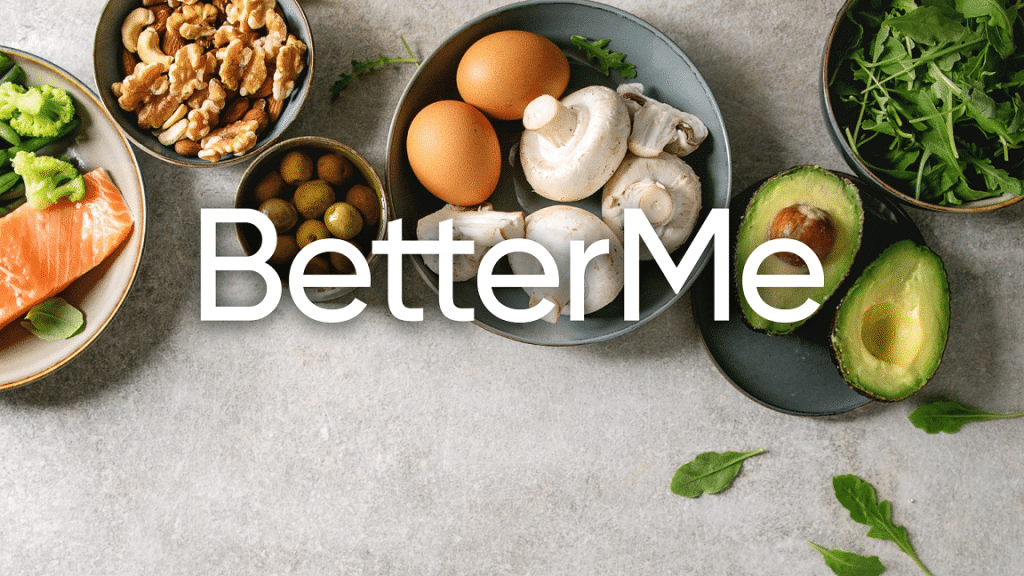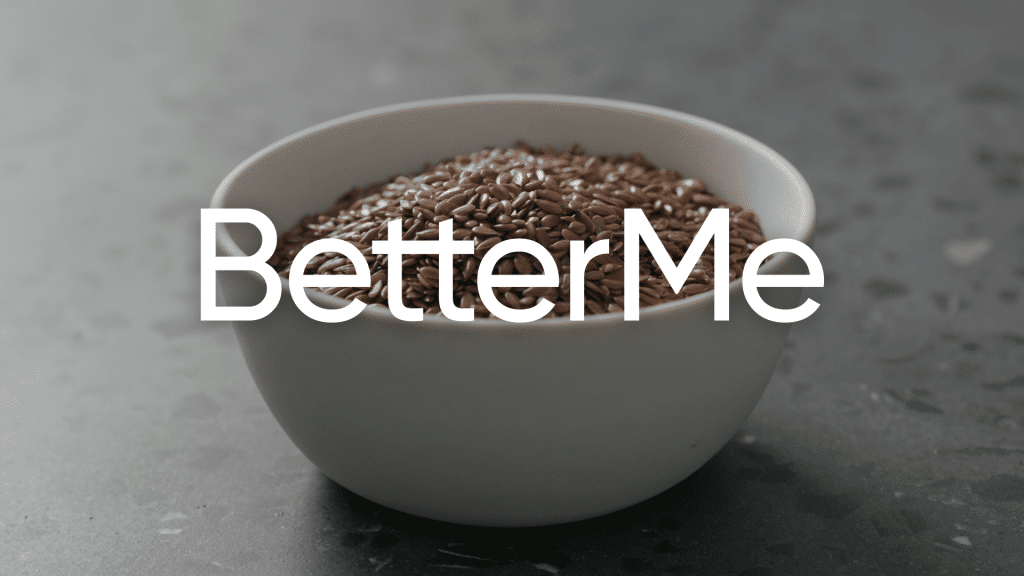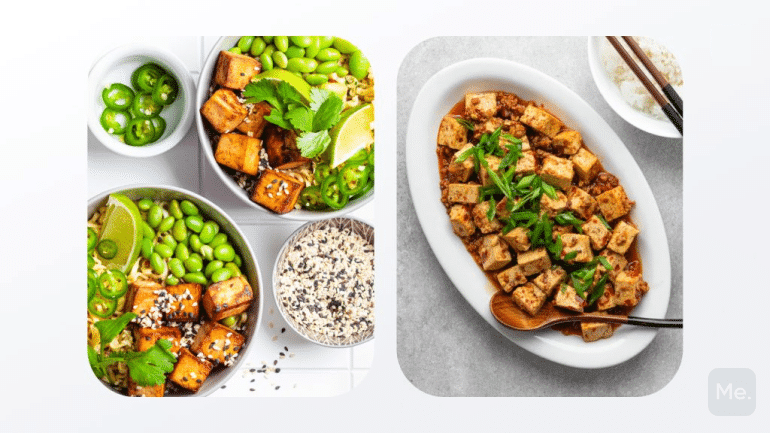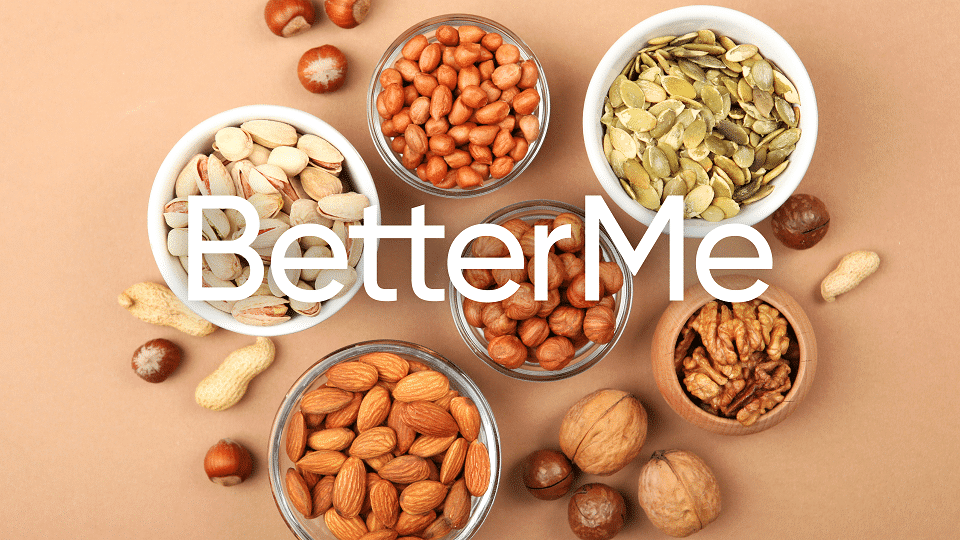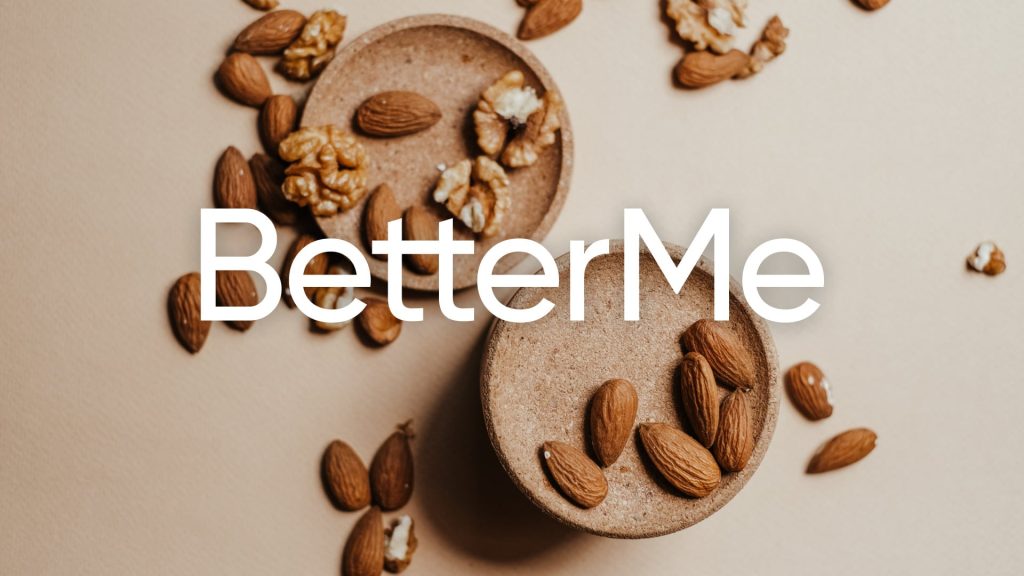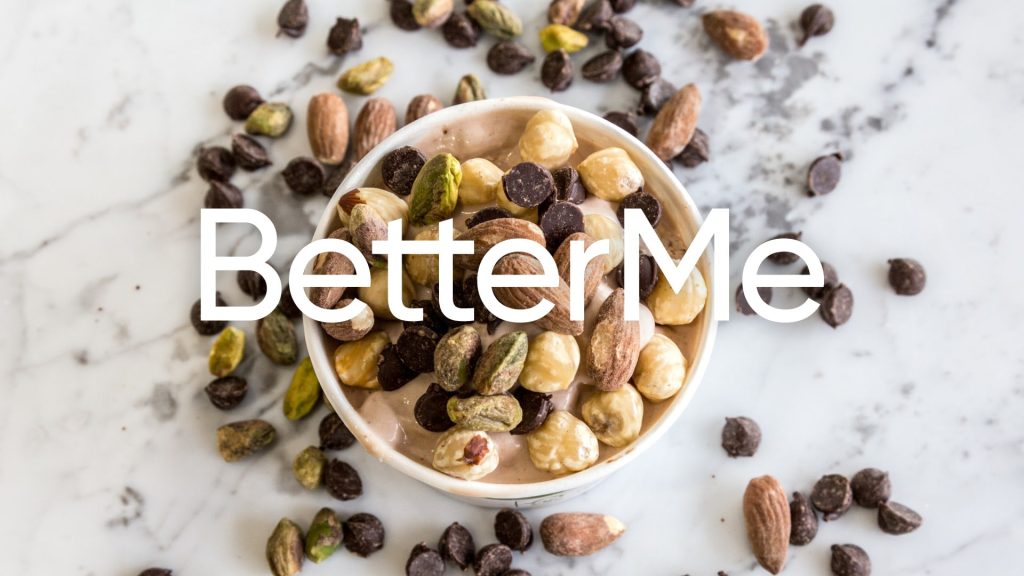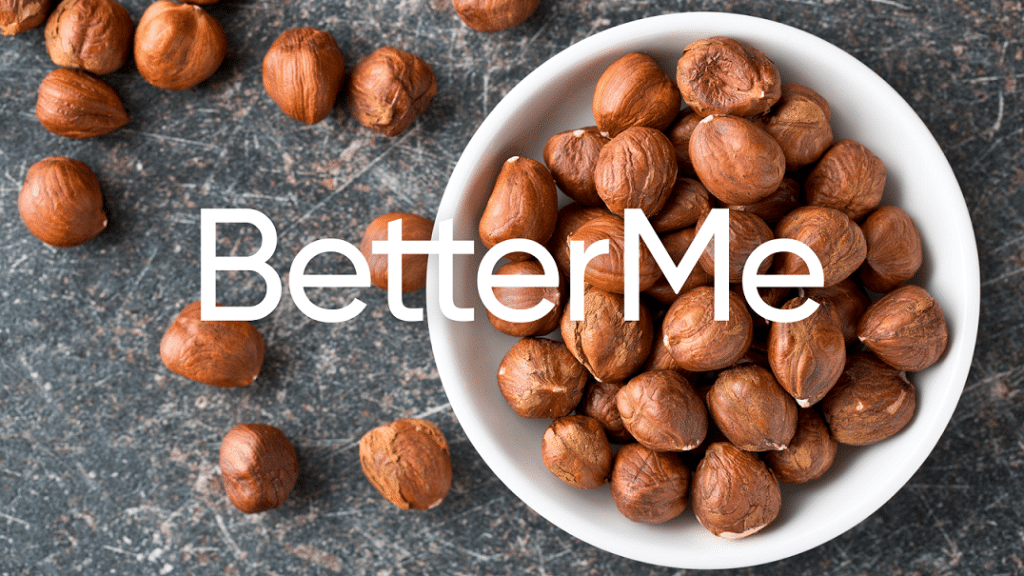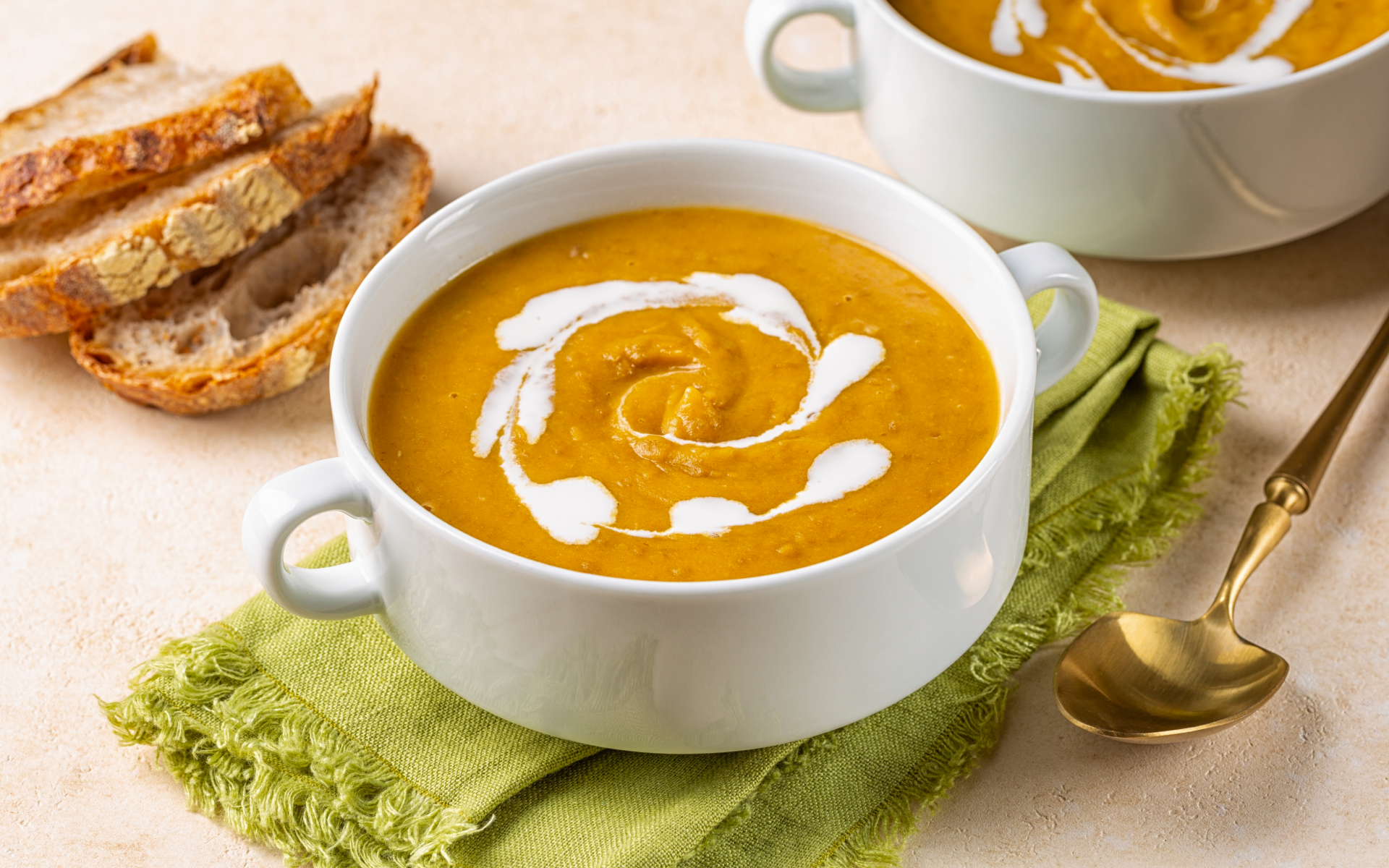In a world full of changes, one aspect of life that has undergone tremendous change is our diet. The increase in health risks arising from a sedentary lifestyle has made people more cautious about what they eat. As a result of this, people have embraced healthier diet plans. This explains why veganism, or rather the plant-based diet has become quite popular. Despite this, it’s fame has not come without a fair share of controversies. How to get all essential amino acids as a vegan?
Get your personalized
meal plan!
There are numerous debates about the healthy aspect of vegan meals. Some people believe these diets lack the potential to meet various body needs including important nutrients, minerals, and amino acids. With this in mind, you will find a lot of questions on whether vegans get all the essential amino acids.
Contrary to what you may think, there are numerous vegan foods you can consume to get all the essential amino acids and nutrients. Taken together, these foods contain all 9 essential amino acids, meaning you will not lack these vital compounds.
This article will shed light on the most common essential amino acids in vegan food sources. It will tell you everything you need to know about acquiring essential amino acids from such vegan sources. In this way it will be easier for you to know what foods to consider to create an effective vegan meal plan.
What Are Amino Acids?
First, let us look through the whole amino acids concept. After all, you must understand what they are and how they help your body to create that sense of urgency. Amino acids refer to organic compounds that come together to form proteins (3).
You perhaps might have heard of proteins being either complete or incomplete. What makes them either complete or incomplete is the availability rate of all the essential amino acids that the body cannot make.
This brings us to another concept of the different types of amino acids. Amino acids tend to fall into three categories, which include essential, conditionally essential, and nonessential. All these categories together bring your amino acids tally to 20 (3).
Out of these 20 your body is able to make only 11 of them. This means that you have to get the rest of them from the foods you consume. The 9 amino acids that you ought to acquire from your meals are what are known as the essential amino acids. They are as follows (11):
- Isoleucine
- Histidine
- Phenylalanine
- Leucine
- Valine
- Lysine
- Threonine
- Methionine
- Tryptophan
Why Do You Need Essential Amino Acids?
There are some significant reasons why your body needs the 9 essential amino acids. It is because they perform various roles that help in maintaining overall good health and body functioning. Some of the notable roles that essential amino acids play in your body include:
-
Enhancing Your Athletic Performance
Athletes sometimes use the amino acids valine, isoleucine, and leucine to boost their performance. These amino acids are metabolized in their muscles to provide extra energy for their exercise (3).
-
Helping With Muscle Growth
Amino acids such as leucine and lysine help in the creation of muscle protein. This also helps in the growth and repair of both muscle and bone (11).
-
Decreasing Your Risk Of Several Health Conditions
Another notable benefit of amino acids is that they reduce your risk of conditions such as diabetes, obesity, infertility, and heart disease (9). Medical News Today also acknowledges that essential amino acids can avert the fatal results of their deficiency. The consequences of amino acid deficiency include digestive problems, low mental alertness, slowed growth in children, and decreased immunity (11).
List Of Vegan Foods With All Essential Amino Acids
Before we discuss the vegan sources of essential amino acids, we must remember that a vegan diet is quite restrictive. The diet only sticks to the consumption of plant-based meals. This consists of fruits, vegetables, grains, seeds, and nuts.
The diet highly restricts the consumption of any animal product, including eggs, dairy, and meat (13). Obviously, you will not find any of these recommendations in this list. This means that the food sources we will list will be purely plant-based. They include:
Essential Amino Acids Vegan: Quinoa
Quinoa ranks among the best plant-based sources of protein. What makes it an excellent option for vegans is the fact that it offers a vast range of amino acids (5). It is quite rich in the essential amino acid lysine, which helps in protein synthesis (5).
It is also a great food to include in a plant-based diet due to its high fiber, antioxidants, and nutrient content. Here is the nutritional profile of one cup of cooked quinoa (5):
- Calories- 222
- Fiber- 5.18 g
- Total carbohydrate- 39.4 g
- Protein- 8.14 g
- Total fat- 3.55 g
It is quite easy to incorporate this naturally gluten-free grain into your diet. It is a great substitute for rice and takes roughly 15 minutes to prepare (5). Some healthy quinoa recipes you can consider include a quinoa salad or a lemon chicken quinoa soup. Go through your quinoa recipe ideas with your dietitian to come up with an effective vegan diet plan.
If you’ve mustered up the courage to crush your weight loss goal, let Betterme take the sting out of this demanding process. Our app will help you restructure your habits, remold your life and crank up your fitness results!
Essential Amino Acids Vegan: Legumes and Beans
You can also acquire all essential amino acids from a vegan diet by incorporating legumes and beans. According to WebMD, legumes are excellent and high-quality protein sources, 20 to 45% of which is rich in the essential amino acid lysine (3).
On the other hand, beans and peas contain roughly 17 to 20% high-quality protein. There are a lot of bean varieties that you can choose to prepare in your vegan diets. They range from lima beans, black, kidney, pinto, red, black-eyed, garbanzo, navy, to soybeans (7).
Soybeans are complete proteins, meaning they contain all the 9 essential amino acids (7). Out of these numerous bean varieties, they are the only variety with all nine essential amino acids. So, you can consider them to boost your essential amino acids intake.
Again, consult your nutritionist to determine how you can incorporate these beans into your vegan meal plan. They may recommend different ideas such as having a soybean curry or consuming soybeans with rice. All these recipes will vary when it comes to nutritional content.
Here is a sample of a nutritional profile obtained from the consumption of 100 grams of green soybeans without salt (12):
- Kilocalories- 141
- Fiber- 4.2 g
- Total fat- 6.4 g
- Protein- 12. 35 g
- Carbohydrate- 11.05 g
Essential Amino Acids Vegan: Mushrooms
Consider also adding mushrooms in your vegan diet plan to make sure you acquire essential amino acids. WebMD states that mushrooms have a total of 17 amino acids, including the 9 essential amino acids (3).
There are numerous edible mushroom options that you can find in the market. They range from enoki, oyster, white, brown cremini, wood ear, shiitake, to Portobello (10). Try to incorporate a variety of different types to get the different nutrient and amino acid profiles of all of them.
At the end of the day, remember that you also need to pick foods within your calorie range. The best way to determine these ranges and craft a suitable vegan diet plan is by seeking professional help. You also get to acquire numerous nutrients from mushroom consumption. Below is the nutritional information of consuming 96 grams of whole, raw mushrooms (10):
- Calories- 21.1
- Protein- 3 g
- Carbs- 3.1 g
- Magnesium- 8.6 mg
- Calcium- 2.9 mg
- Sodium- 4.8 mg
- Iron- 0.5 mg
- Phosphorus- 82.6 mg
- Potassium-305 mg
- Zinc- 0.5 mg
- Selenium- 8.9 mcg
- Copper- 305 mcg
- Vitamin D- 0.2 mg
- Vitamin C- 2 mg
- Niacin- 3.5 mg
- Choline- 16.6 mg
- Folate- 16.3 mcg
Read More: Vegan vs Vegetarian: Is There A Winner In This Tug-Of-War?
Essential Amino Acids Vegan: Seeds
It is also possible to obtain essential amino acids from your diet by including seeds (1). Seeds such as pumpkin seeds tend to be rich in lysine, an essential amino acid responsible for building muscle (11).
Similarly, there are other seeds with large amounts of histidine, methionine, and isoleucine (11). The amino acid histidine helps with the growth and creation of blood cells as well as tissue repair. On the other hand, methionine helps with your hair and skin flexibility while isoleucine helps with hormone production, wound healing, and immunity (11).
Sit down with a professional to attain knowledge on seeds with all essential amino acids and those to include in your diet plan. On many occasions, such professionals recommend hemp seeds. They contain as much protein as soybeans and also provide all the 9 essential amino acids (4).
They are also quite rich in an amino acid known as arginine, which helps by boosting your heart health (4). It means that you will reap numerous health benefits by adding hemp seeds to your vegan diet plan.
Hemp seeds also provide you with other nutrients that help in performing various roles. Take a look at the nutritional value of 3 tablespoons of hemp seeds (4):
- Calories- 116
- Protein- 9.47 g
- Total fatty acids- 14.62 g
- Fat- 1.20 g
- Carbs- 2.60 g
Essential Amino Acids Vegan: Tofu
Tofu comes from soybean curds. It is a great protein source for both vegan and vegetarians. Naturally, tofu is gluten-free and has very low calories (2). It also contains no cholesterol, making it a great and healthy food option.
Since tofu comes from soybean curds, it also contains some essential amino acids. Adding tofu to your diet thereby gives your body these compounds and others that contribute to your overall health (2).
For example, tofu contains isoflavones that help in protecting you against heart diseases, various cancers, and (2). Eating one block of tofu that weighs around 122 grams will provide you with the following nutrients (2):
- Calories- 177
- Protein- 15.57 g
- Fat- 12.19 g
- Carbs- 5.36 g
- Iron- 3.35 mg
- Zinc- 2 mg
- Calcium- 421 mg
- Phosphorus- 282 mg
- Magnesium- 65 mg
- Potassium- 178 mg
- Folate- 27 mcg
Tofu comes in various forms. It could be firm, silken, soft, or extra firm. As a result, you may be wondering how to prepare tofu in different cuisines. If it is your first time using tofu in your meals, then consider the following tips (6):
- Using the silken tofu variety as the thickening ingredient for your soups, sauces, and pasta dressings and dishes.
- Crumbling and using the soft tofu variety as an extender or substitute for cream, cottage, or ricotta cheese.
- Using the firm or extra firm option for grilling, baking, stir-frying, or sautéing.
Reasons why BetterMe is a safe bet: a wide range of calorie-blasting workouts, finger-licking recipes, 24/7 support, challenges that’ll keep you on your best game, and that just scratches the surface! Start using our app and watch the magic happen.
Essential Amino Acids Vegan: Nuts
Nuts are other excellent plant-based protein sources and healthy additions to any vegan or vegetarian diet (1). They are associated with many health benefits, including reducing your risk of inflammation and for several chronic illnesses (8).
They tend to be rich in histidine, methionine, isoleucine, phenylalanine, and tryptophan (11). While selecting nuts, it is important to consider healthful nuts. Some of the most healthful nuts you can add to your vegan diet include:
Peanuts
They are pretty common and have a wide range of benefits. They contain amino acids, antioxidants, polyphenols, and flavonoids that help in boosting human health (8). Eating 100 g of peanuts tends to provide you with the following nutrients (8):
- Calories- 567
- Fiber- 8.50 g
- Sugar- 4.72 g
- Protein- 25.80 g
- Fat- 49.24 g
- Total carbohydrate- 16.13 g
Cashew Nuts
You can choose to eat cashews as snacks or use their creamy texture in your dishes. Whatever method you choose, the fact remains that you will be consuming healthy nuts that provide you with various amino acids. Consuming 100 g of cashews provides you with the following nutrients as depicted by Medical News Today (8):
- Calories- 553
- Fat- 43.85 g
- Fiber- 3.30 g
- Sugar- 5.91 g
- Protein- 18. 22 g
- Calcium- 37 mg
- Magnesium- 292 mg
- Iron- 6.68 mg
- Potassium- 660 mg
- Phosphorus- 593 mg
Almonds
The other category of nuts that you can consider in your vegan diet plan is almonds. They are perfect snack options for people who are looking to boost their protein intake (8). You can, therefore, substitute them for some pretzels or potato chips. Below is the nutritional profile of 100 grams of almonds (8):
- Calories- 579
- Fiber- 12.50 g
- Fat- 49.93 g
- Sugar- 4.35 g
- Carbohydrate- 21.55 g
- Iron- 3.71 mg
- Calcium- 269 mg
- Magnesium- 270 mg
- Vitamin E- 25.63 mg
- Potassium- 733 mg
- Phosphorus- 481 mg
Pistachios
Pistachios rank as nuts due to their feel and appearance. They tend to be quite rich in protein, healthy fatty acids, antioxidants, and other nutrients (8). Consuming pistachios has been linked to a reduced risk of heart diseases, high blood pressure, and problems with endothelial functioning (8). Every 100 grams of pistachios has the following nutrients ((8):
- Calories- 560
- Fiber- 10.60 g
- Fat- 45.32 g
- Protein-20.16 g
- Carbohydrate- 27.17 g
- Sugar- 7.66 g
- Potassium- 1, 025 mg
- Iron- 3.93 mg
- Phosphorus- 490 mg
- Calcium- 105 mg
- Magnesium- 121 mg
Walnuts
Walnuts are well-known nuts due to their heart-healthy fat content. They are also good protein and nutrient sources. However, unlike the other nuts in this list, walnuts tend to have higher calories (8). Take a look at the nutritional information of 100 grams of walnuts (8):
- Calories- 654
- Protein-15.23 g
- Fiber- 6.7 g
- Sugar- 2.61 g
- Carbs- 13.71 g
- Fat-65.21 g
- Iron- 2.91 mg
- Potassium- 441 mg
- Calcium- 98 mg
- Phosphorus- 346 mg
- Magnesium- 158 mg
Hazelnuts
Hazelnuts are a staple in most households due to their distinctive flavor. They, therefore, tend to be widely used in sweet foods. However, compared to other nuts, hazelnuts tend to contain less protein content (8). Nonetheless, they make up for this limitation with numerous health benefits. Here is the nutritional information of 100 grams of hazelnuts ((8):
- Calories- 628
- Protein- 14.95 g
- Fat- 60.75 g
- Sugar- 4.34 g
- Fiber- 9.7 g
- Carbohydrate- 16.70 g
- Calcium- 114 mg
- Iron- 4.70 mg
- Potassium- 680 mg
- Magnesium- 163 mg
- Phosphorus- 290 mg
The Bottom Line
In conclusion, as you can see, all these food sources are plant-based. It is because a vegan diet tends to restrict you to the consumption of plant-based foods only. So, all the essential amino acids vegan food sources in this list are plant-based.
Taking into consideration this vegan diet rule, we have recommended foods such as nuts, seeds, tofu, quinoa, mushrooms, legumes, and beans. These are all great options that contain either all or some essential amino acids.
The best move is consulting with a healthcare professional before adding any or all of these foods to your diet plan. They will help choose the best food sources that align with your daily calorie intake and nutritional needs.
On your way to a better life, you need to supplement both mental and physical health.
DISCLAIMER:
This article is intended for general informational purposes only and does not address individual circumstances. It is not a substitute for professional advice or help and should not be relied on to make decisions of any kind. Any action you take upon the information presented in this article is strictly at your own risk and responsibility!
SOURCES:
- 10 Foods High in Essential Amino Acids (2021, medicinenet.com)
- Everything you need to know about tofu (2017, medicalnewstoday.com)
- Foods High in Amino Acids (2020, webmd.com)
- Health benefits of hemp seeds (2018, medicalnewstoday.com)
- Health benefits of quinoa (2019, medicalnewstoday.com)
- Tofu Recipes and Cooking Tips (2008, webmd.com)
- What are the health benefits of beans? (2020, medicalnewstoday.com)
- What are the most healthful nuts you can eat? (2018, medicalnewstoday.com)
- What Are the Nine Essential Amino Acids (2021, medicinenet.com)
- What is the nutritional value of mushrooms? (2019, medicalnewstoday.com)
- What to know about essential amino acids (2019, medicalnewstoday.com)
- What to know about soy (2019, medicalnewstoday.com)
- What to know about vegan diets (2020, medicalnewstoday.com)




